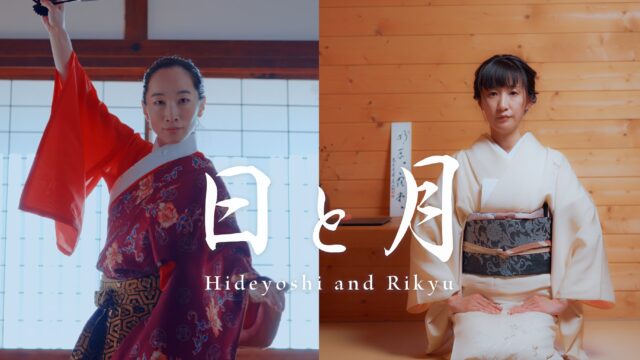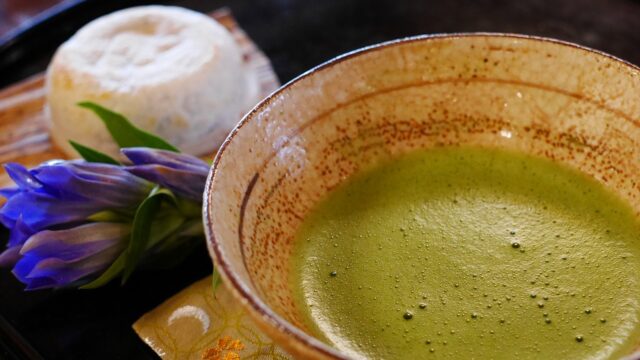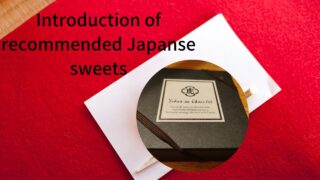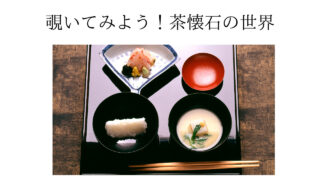~Why Tea Ceremony Has Continued to Exist Until Today~ 茶道が今日まで存続してきた理由
Welcome to the Tea Ceremony Time!
My name is Sayaka Sakai, and I am the owner of the Tea Ceremony Time.
This tea room is a place where you can learn about the tea ceremony from various angles.
I would be grateful if you could stay with me until the end.
Tea Ceremony Timeへようこそ!
Tea Ceremony Time主催の酒井沙弥香です。
この茶室は、茶道をさまざまな角度から学べる場所です。
最後までお付き合いいただければ幸いです。
The tea ceremony has been continuing for 400 years. 茶道は400年も続いています。
“The history of the tea ceremony dates back to the Sengoku period, about 400 years ago from the time Sen no Rikyu established the current style of the tea ceremony.”
「茶道の歴史は、千利休が現在の茶道のスタイルを確立した
約400年前の戦国時代にまで遡ります。」

What do you think about something lasting for 400 years? Some may think it’s normal for traditional Japanese culture to continue to exist.
400年も続くことについてあなたはどう思いますか?
日本の伝統文化が存続し続けるのは
当たり前だと考える人もいるかもしれません。
Certainly, it may be easier for a single thing to continue for 400 years than for an average household to pass it down through generations. However, even with Japan’s traditional culture, external factors from the social climate can have a significant impact, and there is a real possibility that it may disappear if we are not careful.
確かに、一般家庭で代々受け継いでいくよりも、
一つのものを400年続けるほうが簡単かもしれません。
しかし、日本の伝統文化であっても、社会情勢などの外的要因の影響は大きく、
気をつけていないと消えてしまう可能性も十分にあるのです。
Crisis in the Tea Ceremony 茶道の危機
The aftermath of Sen no Rikyu’s seppuku, ordered by Toyotomi Hideyoshi, was a difficult time for the Sen family.
豊臣秀吉の命により千利休が切腹した後、
千家は苦難の時代を迎えました。

Although calling him a criminal would be inappropriate, the fact that the head of the household was ordered to commit seppuku (ritual suicide) by the most powerful person at that time means that it was a crisis for the family.
犯罪者と呼ぶのは大変失礼ですが、
当主が当時の最高権力者から切腹を命じられたということは、
一族にとっての危機であったことに変わりはありません。
In fact, even the children of Sen no Rikyu were expelled from Kyoto.
実際、千利休の子どもたちも京都から追放されました。
Thanks to the efforts of daimyos who loved tea ceremonies, the family was able to return as tea masters and clear their names.
茶の湯を愛した大名たちの尽力により、
一族は茶人として復帰し汚名を晴らすことができました。
Traditional culture can only continue if there are people who are willing to protect and carry it forward.
伝統文化は、それを守り、
継承しようとする人々がいるからこそ継続できるのです。
Of course, it is also important whether there are successors to carry on the tradition, but in the case of the Chado Grand Master, only men are eligible. If a successor could not be born into the family, there was also the option of adopting a son-in-law as a successor.
もちろん、伝統を継承する後継者がいるかどうかも重要ですが、
茶道家元の場合、継承できるのは男性のみです。
家に後継者が生まれない場合は、久田家という
千家の娘が嫁いだ家から養子を後継者に迎えていました。
Choose coexistence and mutual prosperity 共存と相互繁栄を選択
Furthermore, what I personally think is that various schools have derived from the way of tea. The largest school is the Senke school, but I believe it has been able to survive because they coexist and prosper without denigrating or competing with each other.
また、私が個人的に思うことは、
茶道では様々な流派が派生しました。
最も大きな流派は三千家ですが、
お互いを貶めたり競い合ったりすることなく共存・繁栄してきたからこそ、
生き残ることができたのではないかと思っています。
If each school had claimed that their school was the only truth and that other schools were wrong and fought against each other, we can’t imagine what would have happened to the tea ceremony.
もし、それぞれの流派が自分たちの流派だけが真実であり、
他の流派は間違っていると主張して互いに争っていたら、
今日の茶道はどうなっていたか想像もつきません。
The “sansenke” families, including the Omotesenke, Urasenke, and Mushakojisenke, have been able to identify their respective positions well. For example, when the term “hanayome shugyo” (bridal training) fell out of use and the number of people practicing tea began to decline.
表千家、裏千家、武者小路千家など三千家は、
それぞれが自分たちの流派の立ち位置を明確に意識しました。
「花嫁修業」という言葉が使われなくなり、
茶道に取り組む人も減少してきたとき、転機がありました。
The Omotesenke school focused on the official state events and ceremonies for national guests, while the Urasenke school concentrated on teaching tea ceremony at schools and culture centers. The Mushanokojisenke school made efforts to promote tea ceremony overseas. Each school had its own area of expertise and they did not compete for market share.
表千家は国家の公式行事や国賓の式典に力を入れ、
裏千家は学校や文化センターなどでの茶道指導に力を入れました。
武者小路千家は海外での茶道普及に力を入れました。
各流派はそれぞれ得意分野を持ち、市場シェアを競うことはありませんでした。
That is why personally, I believe that practice tea ceremony can also be seen as a prayer for peace.
だからこそ、私は茶道を実践することは
「平和への祈りにもつながる」と信じています。
That concludes today’s tea ceremony.
Thank you for joining me until the end!
本日のお茶会はこれで終了です。
最後までお付き合いいただきありがとうございました!






